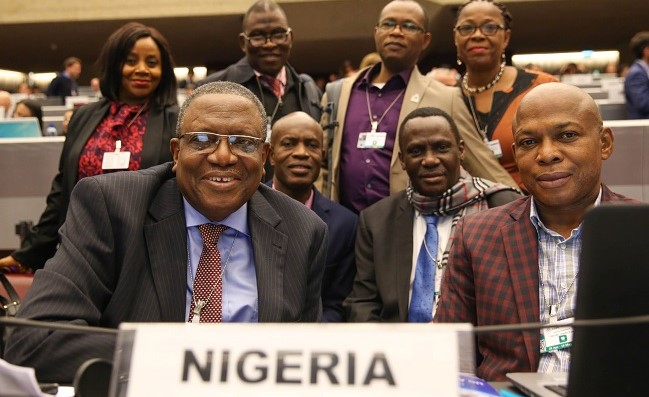The 2019 meetings of the Conference of the Parties (COP) to the Basel, Rotterdam, and Stockholm (BRS) Conventions wrapped up the first week with discussions of several waste issues, with extensive time both in plenary and a contact group devoted to work on marine plastic litter and microplastics.

Morning plenary was dominated by interventions on this salient issue, with over 80 delegates sharing their views. A division began to emerge on whether transboundary movement of plastics for recycling is a “problem” or a “solution”, given the varied capacities of countries to anage the volume of plastics and the growing number of plastics that are either technically difficult to recycle or of low economic value, making them difficult to sell for recycling.
Several developing countries identified specific needs for technical assistance and financial resources, such as improving facilities, training customs officials, and identifying the nature of the plastics.
While India called for technical guidelines on plastic waste, The Gambia, Nigeria, and Rwanda underlined the need for alternatives to plastic.
The US supported a partnership on plastic waste, revising guidelines on ESM of plastic wastes, and establishing an intersessional working group on marine plastic litter, but expressed concern that the Norwegian proposal could negatively impact the recycling of plastic waste.
The United Nations Environment Programme (UNEP) reported that the UN Environment Assembly’s fourth meeting had extended the work of the Ad Hoc Open-Ended Expert Group on Marine Litter and Microplastics.
BC Regional Centre in Russia called for the COP to mandate regional centres to assess plastic waste from nanotechnologies.
The Basel Action Network presented a petition signed by 700,000 people calling to end “the practice of using developing countries as dumping grounds for plastic waste.”
Toxics Link urged use of the PIC procedure to enable countries to refuse plastic imports. Observing that marine litter is also a toxic hazard that can increase POPs pollution, IPEN asked all parties to require extended producer responsibility. Center for International Environmental Law (CIEL) called Norway’s proposal a “well balanced” response.
Bureau of International Recycling called for producers and designers to stop placing non-recyclable or difficult-to-recycle plastics on the market.
The American Chemistry Council expressed concern that reclassification of wastes could increase burdens on states. The Institute of Scrap Recycling Industries said that the PIC procedure could create an administrative burden.
The World Plastics Council stated that viable recycling is necessary to prevent marine litter and expressed concern about amending the annexes. The Information Technology Industry supported further work to study “unintended effects.”
Delegates established a contact group on plastics, co-chaired by Vivienne Ahern (Ireland) and Manoj Kumar Gangeya (India), with a mandate to: discuss the amendments to Annexes II, VIII, and IX as proposed by Norway and to take into account the CRPs proposed by the EU and Argentina with the aim of preparing a draft decision; and further actions to address plastic waste; and to revise the draft terms of reference and workplan for the partnership.
The BRS COP comprises the 9th Conference of the Parties of the Stockholm Convention (SC COP9), the fourteenth meeting of the Conference of the Parties to the Basel Convention (BC COP14), and the ninth meeting of the Conference of the Parties to the Rotterdam Convention (RC COP9).
The theme of the meetings, which started on Monday, April 29 and will end on Friday, May 10, is: “Clean Planet, Healthy People: Sound Management of Chemicals and Waste”.
